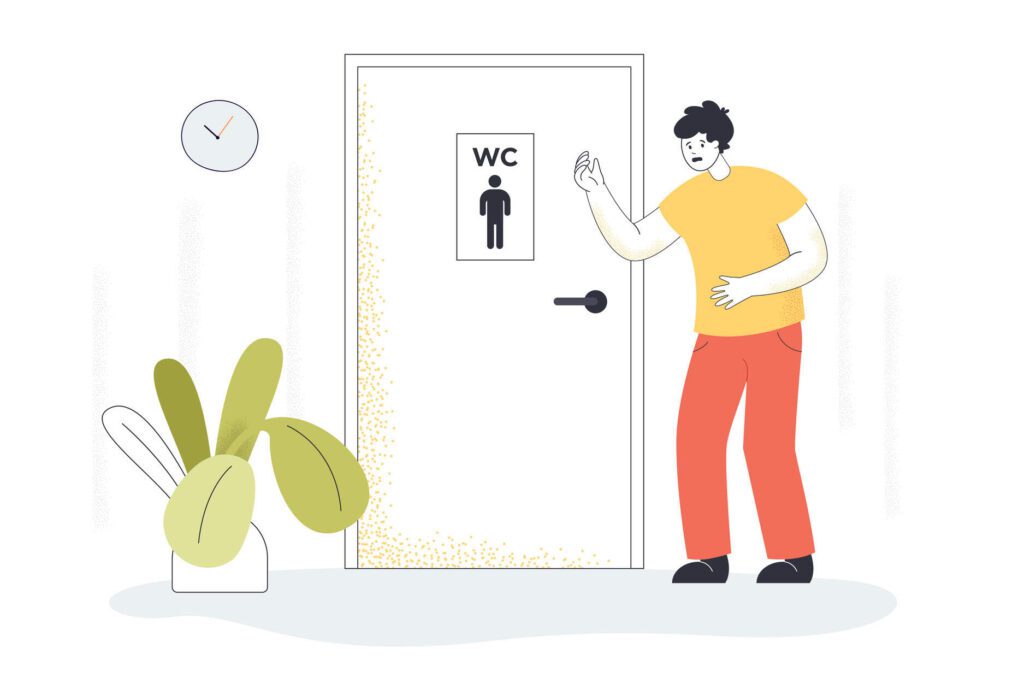What is constipation & how can we treat it?

Constipation most often occurs when waste or stool moves too slowly through the digestive tract or cannot be eliminated effectively from the rectum, which may cause the stool to become hard and dry.
Constipation is very common and it affects people of all ages.
Fortunately, constipation can be treated easily.
The main treatments for constipation include diet, exercise, and fiber supplements.
If you're constipated, talk with your doctor about your specific treatment needs:
Talk to your doctor about your specific treatment needs. Your doctor can discuss how long your constipation is likely to last and which steps you can take to feel better.
Your doctor may be able to help you find ways to relieve constipation without taking medications or other treatments, such as eating more fiber or using laxatives less often.
If these things don't help, talk with your doctor about other options for treating constipation.
The most common causes of constipation include the following:
Many factors contribute to constipation. The most common causes include the following:
- Not enough fiber in your diet
- Not enough liquid in your diet
- Being sedentary (sitting for long periods of time)
- Certain medications (such as pain relievers, antacids, and iron pills)
- Irritable bowel syndrome
- Poor bathroom habits
- Changes in your normal routine (travel, pregnancy)
- Other medical conditions (diabetes, hypothyroidism, Parkinson's disease)
If you're constipated for more than a few days or if it's severe enough to cause pain or bleeding, consult your doctor.
- Chronic constipation can lead to serious health problems, such as hemorrhoids, anal fissures (tears in the lining of the anus), and bowel obstruction.
Symptoms of constipation include:
- Infrequent bowel movements (fewer than three stools a week)
- Hard, dry stools that are difficult and painful to pass
- Straining during bowel movements
- Sensation of incomplete evacuation after a bowel movement
- Abdominal pain or discomfort
- Bloating
- Nausea
- In rare cases you can experience vomiting, which can indicate a serious underlying issue and mandates an urgent consultation with your Physician.
How to Manage and Treat Constipation:
- Drink plenty of fluids. Aim for six to eight glasses of water a day, prune juice, and coffee (without caffeine).
- Eat more fiber-rich foods, such as fruits, vegetables, whole grains, and legumes (beans and peas). Fiber adds bulk to stool and makes it softer and easier to pass. A dietitian can help you plan meals that are high in fiber.
- Exercise regularly! Physical activity helps move food through your digestive system by stimulating bowel contractions
- Try slowly increasing the number of minutes you exercise each day until you reach 30 minutes on most days of the week. Regular aerobic exercise like walking or swimming is best.
If a change in diet and increased physical activity don't help relieve your constipation, you may need medications to loosen stools.
But these drugs don't work for everyone. They can have side effects that include cramps, diarrhea, nausea, or bloating. You may need to try different medications to find one that works for you.
Medications that can help relieve constipation include:
- Stool softeners (docusate) or laxatives (senna)
- Lubricants such as mineral oil or petroleum jelly applied with suppositories
- Osmotic agents
- Enemas
You should take medication according to the instructions given to you by your Physician and on the label of the package insert. Tell your doctor if it isn't working well enough after two weeks of use.
Conclusion:
Constipation is a common problem, though it can be embarrassing to discuss with your doctor. Although you may feel uncomfortable, don't hesitate to discuss your symptoms and when they started.
If you are experiencing severe rectal bleeding or if the amount of blood is increasing over time, schedule an appointment with your doctor.
Your doctor can determine the cause of your constipation and recommend the appropriate treatment.


